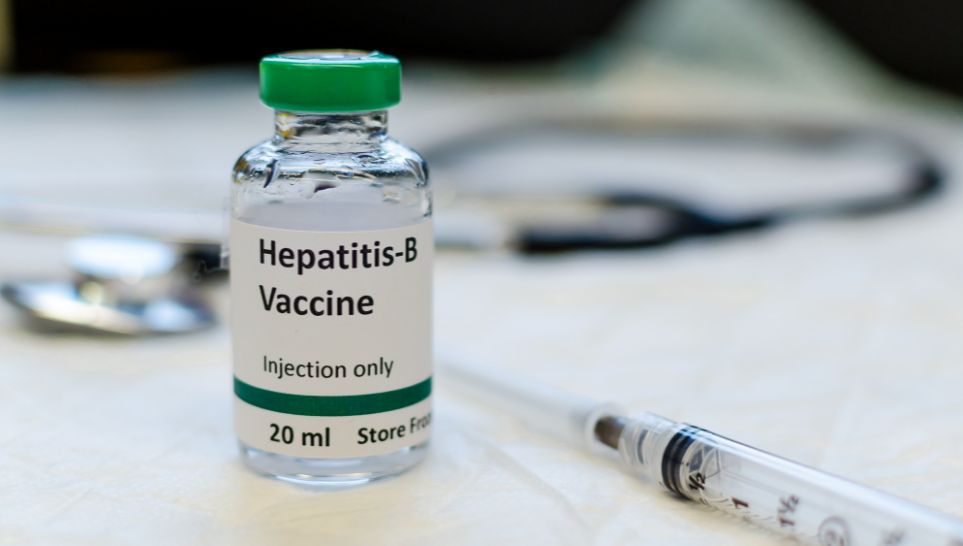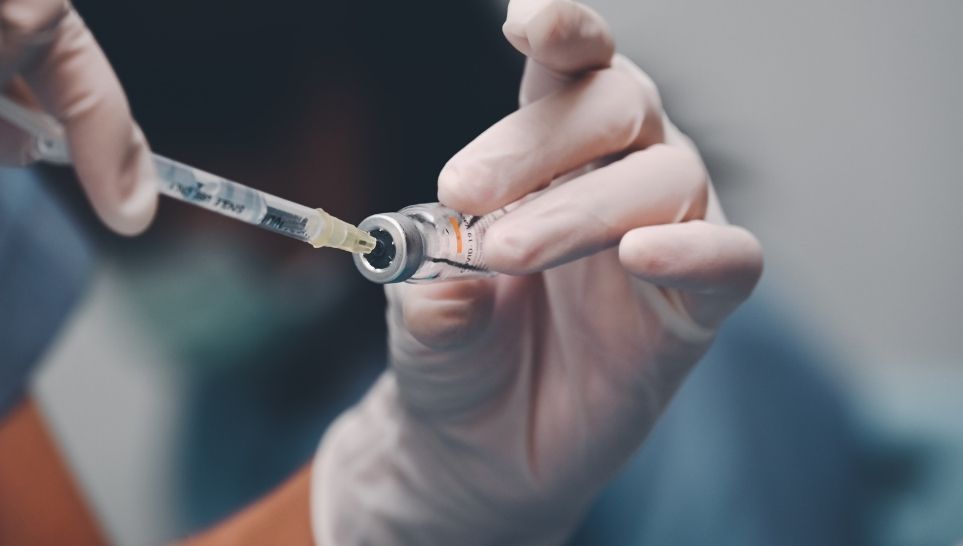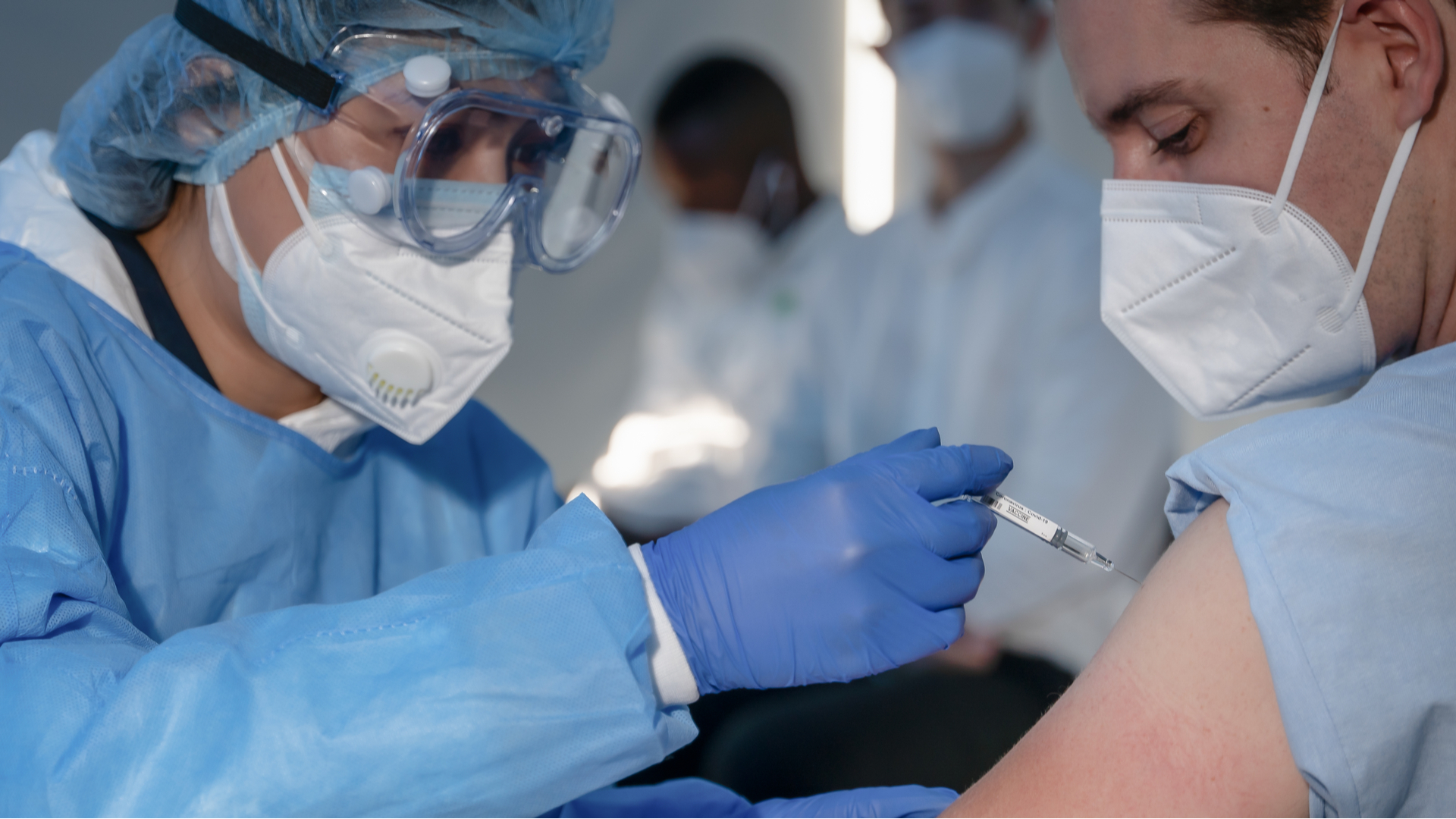
In the latest discussions around Guillain Barre, Covid vaccine links have been a hot topic worldwide. Guillain Barre syndrome (GBS) is a rare autoimmune disease that many believe has a vaccine link, especially with certain COVID-19 vaccinations. On July 13, 2021, the U.S. Food and Drug Administration (FDA) officially announced a revision to the Johnson & Johnson (Janssen) COVID-19 fact sheet, a warning of an increased risk of developing Guillain Barre syndrome (GBS).
Recently vaccinated individuals may feel anxious after reading pandemic-related headlines, but is there a real cause for concern? Of the roughly 12.5 million doses administered, the statistics included only 100 reports of J&J vaccine recipients developing GBS, including 95 hospitalizations and one death.
Below, our professionals unpack what concerned citizens need to know about the Guillain Barre-Covid vaccine discussion, including the legal perspective.
What Is Guillain Barre Syndrome?
Guillain Barre Syndrome is an autoimmune disease that impacts nerves in the legs, arms, and feet. The condition attacks the immune system, disrupting the communication between the nervous system and the brain, which damages nerve cells. The predominant symptoms of GBS include:
- pain,
- weakness, and
- tingling or numbness in the extremities from damaged nerves.
It is true that Guillain Barre Syndrome is treatable, but the symptoms linger for months or even years in severe cases. GBS sufferers may experience permanent disabilities in rare cases, including paralysis or difficulty breathing, and even death. It is most common in adults over 50 years old, across all racial groups.
Is There A Known Cause Of Guillain Barre Syndrome?
One of the complications in the Guillain Barre-Covid vaccine discussion is that there is no known cause of the condition. It is not inherited, nor is it contagious. One common belief is that Guillain Barre Syndrome stems from immune system issues, where an otherwise healthy immune system attacks the body’s nerves instead of the usual viruses, germs, and bacteria.
Several viruses and infections could trigger Guillain Barre Syndrome, and, in rare cases, GBS does seem to point to a link to certain vaccinations.
GBS and Infections
Approximately 65% of people who developed GBS suffered from a respiratory or gastrointestinal illness a few weeks before its onset.
Infections known to trigger Guillain Barre Syndrome include:
- Food poisoning, especially when the Campylobacter jejuni virus is present
- Epstein Barr virus
- Tropical viruses, including Zika and Dengue
- HIV
- Cytomegalovirus
GBS and Vaccines
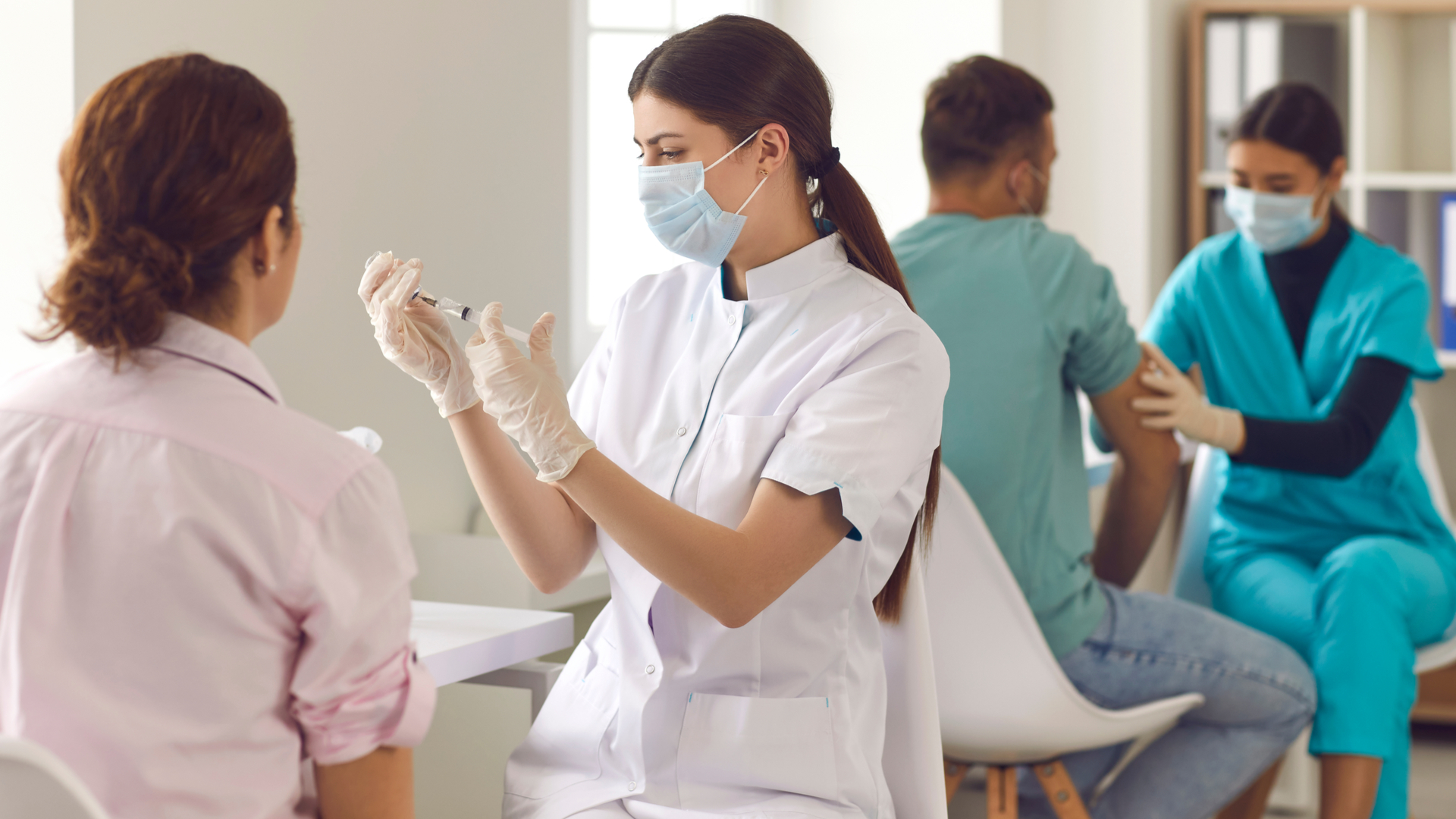
Sadaka Associates Vaccine Injury Help Center is aware of a small number of GBS cases that trace back to a vaccination. There is no known reason for this phenomenon, although there are a few theories about why this happens. For example, since vaccines stimulate an immune response in the body, one theory says that antibodies confuse the body’s own tissue with foreign matter and attack these areas.
The following vaccines have a recorded association with an increased risk of GBS:
Influenza Vaccines
- Swine Flu — In 1976, the Swine Flu pandemic vaccination program inoculated more than 45 million people. There were increased reports of GBS afterward (approximately 1 out of 100,000 vaccine recipients).
- H1N1 Flu Vaccine — The risk of GBS associated with the H1N1 vaccine was 1 to 5 cases per million administered doses.
- Annual Flu Vaccination — The subsequent studies on flu vaccinations show variable percentages of Guillain Barre (Covid vaccine excluded). The average is about one case of GBS per million doses administered.
Other Vaccines
- Rabies vaccine — The old Rabies vaccine versions that were linked to a heightened risk of GBS are now obsolete in the United States.
- Smallpox vaccine — Before, the smallpox vaccine showed a higher risk of GBS, but this is no longer in use.
- Oral Polio vaccine —The oral Polio vaccine linked to GBS is also no longer in use within the United States, with the current polio vaccine administered by injection and showing no correlation to this autoimmune condition.
- Tetanus-toxoid-containing vaccines — The link is still present but rare, reporting just a few cases of GBS each year.
- Shingles vaccine — Approximately three cases per million doses report links to GBS.
The chances of developing GBS from a vaccine are low. However, the United States authorities recognize that individuals who suffer from GBS after receiving a flu shot should be eligible for compensation from the Vaccine Injury Compensation Program. The legal professionals at Sadaka Associates Vaccine Injury Help Center would be happy to tell you more.
GBS vs. Johnson & Johnson’s COVID-19 Vaccine: Four Key Facts
What are the facts surrounding the Guillain Barre-Covid Vaccine risk associations? Here are some important facts that might help clarify the links.
#1 The Risk of Developing GBS After the Johnson & Johnson COVID Vaccine Is Very Low
While it is true that the FDA reported 100 cases of GBS in connection with the Johnson & Johnson COVID vaccine, the number is insignificant compared to the 12.5 million doses dispensed. The ratio of vaccine doses administered to the number of GDS cases was just 0.0008%. According to the FDA, while the reported cases of Guillain Barre Syndrome suggest an increased risk of developing GBS, the current evidence is insufficient to prove a direct correlation.
#2 The Johnson & Johnson Shot Is the Only Guillain Barre-Covid Vaccine Link
Approximately 146 million fully vaccinated people in the United States received either the Pfizer or Moderna COVID-19 vaccine. Two vaccine doses of Pfizer or Moderna are necessary to achieve the full benefit. There has been no measurable increase in GBS cases for people who received the Pfizer or Moderna COVID-19 vaccine.
#3 An Infection Is the Most Common Trigger For GBS (Not A Vaccine)
In the United States, between 3,000 and 6,000 patients have developed Guillain Barre syndrome following a bacterial or viral infection, including contracting the COVID-19 coronavirus.
#4 Doctors Highly Recommend Having the COVID-19 Vaccination
The risk of an unvaccinated person contracting COVID-19 is exponentially higher than the chance of developing GBS after receiving the Johnson & Johnson vaccine. The metric is especially significant considering the number of emerging COVID-19 variants. Predominant medical recommendations are still that all eligible people should receive one of the COVID-19 vaccination options to counter the prevailing risk.
Guillain Barre-Covid Vaccine FAQs For Quick Reference
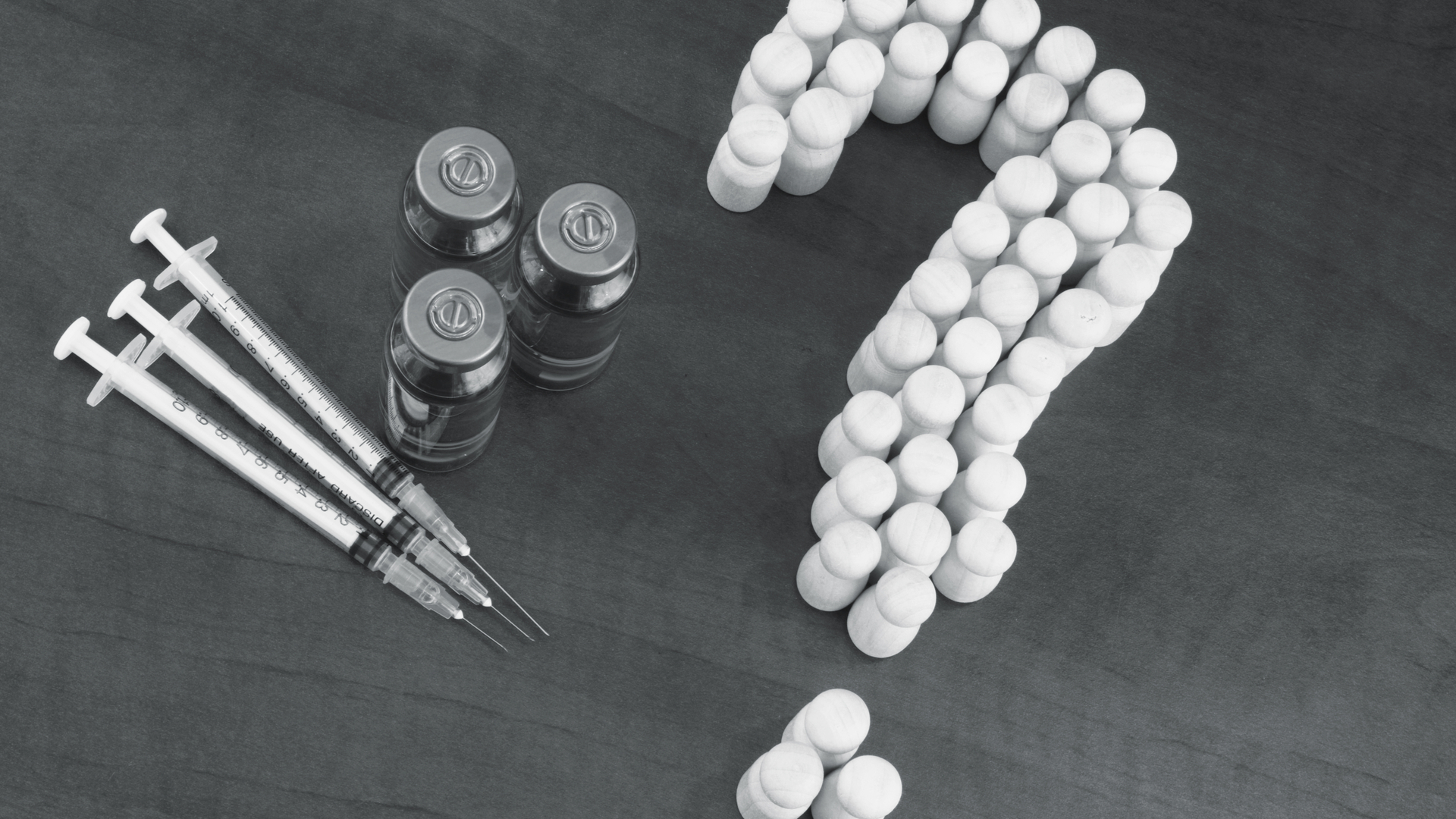
What are the risks of developing GBS from the Covid Vaccine?
The number of reported cases of GBS in connection with the Johnson & Johnson vaccine is negligible (almost 13 million Americans received these vaccinations, and only 0.0008% developed GBS). The risk is extremely low in statistical terms.
What type of vaccine causes GBS?
There are currently three FDA-approved vaccines to prevent severe illness and death due to COVID-19: Moderna, Pfizer, and Johnson & Johnson (Janssen). As far as the reports of increased risk of Guillain Barre, Covid vaccine associations are only related to the Johnson & Johnson vaccine.
Is the FDA aware of the GBS connection?
Yes. The U.S. Food and Drug Administration (FDA) mandated the Johnson & Johnson fact sheet revision to include warnings of an increased risk of developing Guillain Barre Syndrome.
What Should I Look out For If I Received the Johnson & Johnson Vaccine?
Common side effects usually subside within a day or two and might include fever, tiredness, muscle pain, or general pain or redness at the injection site. After vaccination, Guillain Barre-Covid vaccine symptoms usually occur within 42 days.
Typically, the first symptom is tingling or numbness in the feet or hands. Other symptoms of Guillain-Barré Syndrome include:
- Weakness or tingling in your limbs that spreads gradually
- Difficulty walking
- Double vision
- Difficulty speaking, swallowing, or chewing
- Loss of bladder control
The FDA recommends calling a healthcare provider or 911 immediately for the onset of these types of symptoms after vaccination. The team at Sadaka Associates Vaccine Injury Help Center can also advise on the legal options thereafter.
Do people recover from GBS?
There are many effective ways to treat GBS, and most patients recover fully within a few months. In severe cases, the symptoms of GBS last years, and some patients suffer permanent nerve damage. A discussion with our team about legal recourse is always an option.
Do people seek compensation for the Guillain Barre-Covid vaccine association?
A GBS diagnosis in connection with a vaccine may be grounds for a compensation claim through the National Vaccine Injury Compensation Program (VICP), established in 1986. The VICP provides remuneration for vaccine-related injury, working through a no-fault process (it does not set out to blame healthcare providers or vaccine manufacturers). The Vaccine Injury Compensation Program recognizes that although rare, adverse reactions to vaccines happen, compensation is paramount.
Learn More About Your Right to Compensation Through VICP
Requesting compensation through the National Vaccine Injury Compensation Program is different from a regular lawsuit. Legal counsel makes the process smoother, including filling a claim with the Office of Special Masters and the U.S. Court of Federal Claims. So far, the VICP has awarded over $3 billion to victims and loved ones impacted by vaccine-related illness, injury, or death.
When it comes to navigating the Guillain Barre-Covid vaccine nuances within a legal framework, Sadaka Associates Vaccine Injury Help Center offers the experience and expertise to make the claims process a smooth one. We connect our clients with resources and guidance for handling lost income and medical bill claims, as well as pain and suffering caused by a vaccine injury.
Do you have questions surrounding the Guillain Barre-Covid vaccine issue? Call Vaccine Injury Help Center at 1 (800) 810-3457 today to find out more.




